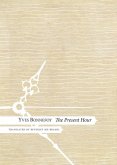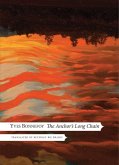"The Digamma" is the latest book of poetry in prose by celebrated author Yves Bonnefoy, who is also the leading translator of Shakespeare in France. In this new collection, his fascination with the defining author of our language is amply reflected in God in "Hamlet" and For a Staging of "Othello," two poems in prose which belong to an ongoing series of meditations on the plays. The collection also includes haunting reflections on children, nature, origins of art, vanished cultures. A key passage of the title piece of the book, The Digamma, depicts the figures of Nicolas Poussin s "The Shepherds of Arcadia," which Bonnefoy has identified as crucial to the artist s evolution. The sustained reference to Poussin s iconography serves to ground the text in the lost civilizations of antiquity. Subtly, it brings out the underlying theme of the entire collectionin the ambivalent world we inhabit, being and non-being are fundamentally one."








